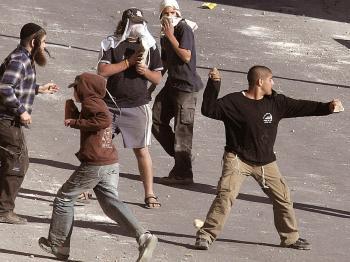Many nations, particularly developing countries, are affected by the destructiveness of desertification which leads to famine and rural community displacement. The desertification problem is due to intensive wrong agriculture and deforestation, leading some time to shortage of water.
While desertification is an increasing problem worldwide, in Israel the desert is receding, due to research and advanced technologies.
Last week more than 300 representatives, experts, scientists, and practitioners from Africa, India, Italy, Turkey, China, Spain, Germany, The Netherlands, and the United Kingdom attended the conference at Sde Boker Blaustein Institutes of Ben Gurion University (BGU). There were also participants from the Palestinian Authority and from Jordan.
Dr. Alon Tal, a professor of environmental policy at BGU exposed a UN study: “one-third of the Earth’s populations, about two billion people are potential victims of desertification encroachment effect. From sub-Sahara Africa to the former Soviet republics in central Asia, human abuse and malpractice of the land are making the matter worse.”
Deforestation in Africa and in Asia is one of the main causes of desertification. Prof. Alan Grainger from Leeds University (UK) advocating the development of an International Forestry Commission, which would oversee all forestation/reforestation issues worldwide.
While desertification is an increasing problem worldwide, in Israel the desert is receding, due to research and advanced technologies.
Last week more than 300 representatives, experts, scientists, and practitioners from Africa, India, Italy, Turkey, China, Spain, Germany, The Netherlands, and the United Kingdom attended the conference at Sde Boker Blaustein Institutes of Ben Gurion University (BGU). There were also participants from the Palestinian Authority and from Jordan.
A Human-Caused Problem
The conference focused on issues involving soil degradation in the dry lands. Professor James Reynolds from Duke University explained that at the heart of the desertification controversy is the fact that natural vegetation in many areas has been eliminated or reduced through various human activities.
Reynolds brought the example of q/uinoa that is causing economic strife amongst farmers in Bolivia. The huge demand for quinoa is causing other crops to be neglected.Dr. Alon Tal, a professor of environmental policy at BGU exposed a UN study: “one-third of the Earth’s populations, about two billion people are potential victims of desertification encroachment effect. From sub-Sahara Africa to the former Soviet republics in central Asia, human abuse and malpractice of the land are making the matter worse.”
Deforestation in Africa and in Asia is one of the main causes of desertification. Prof. Alan Grainger from Leeds University (UK) advocating the development of an International Forestry Commission, which would oversee all forestation/reforestation issues worldwide.



